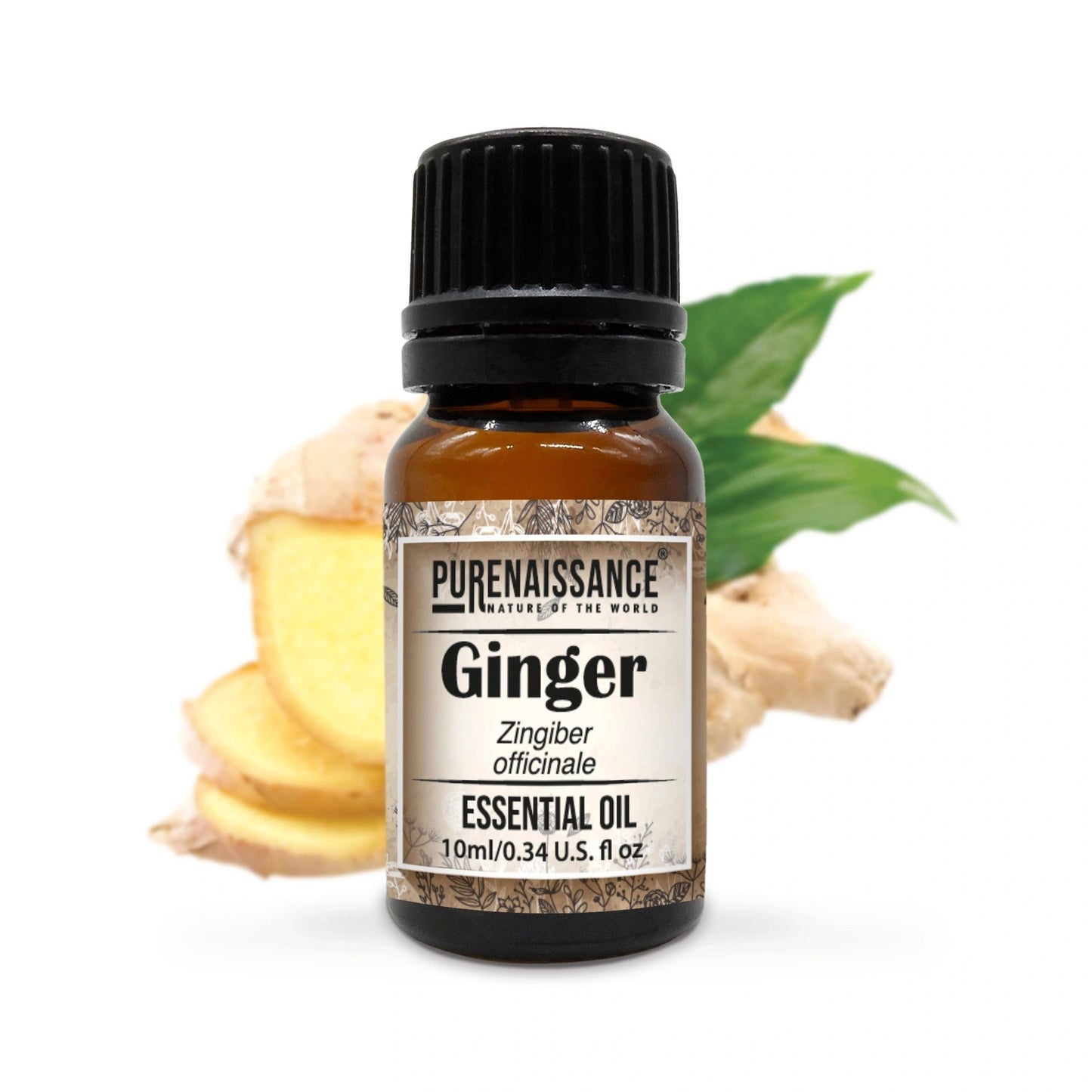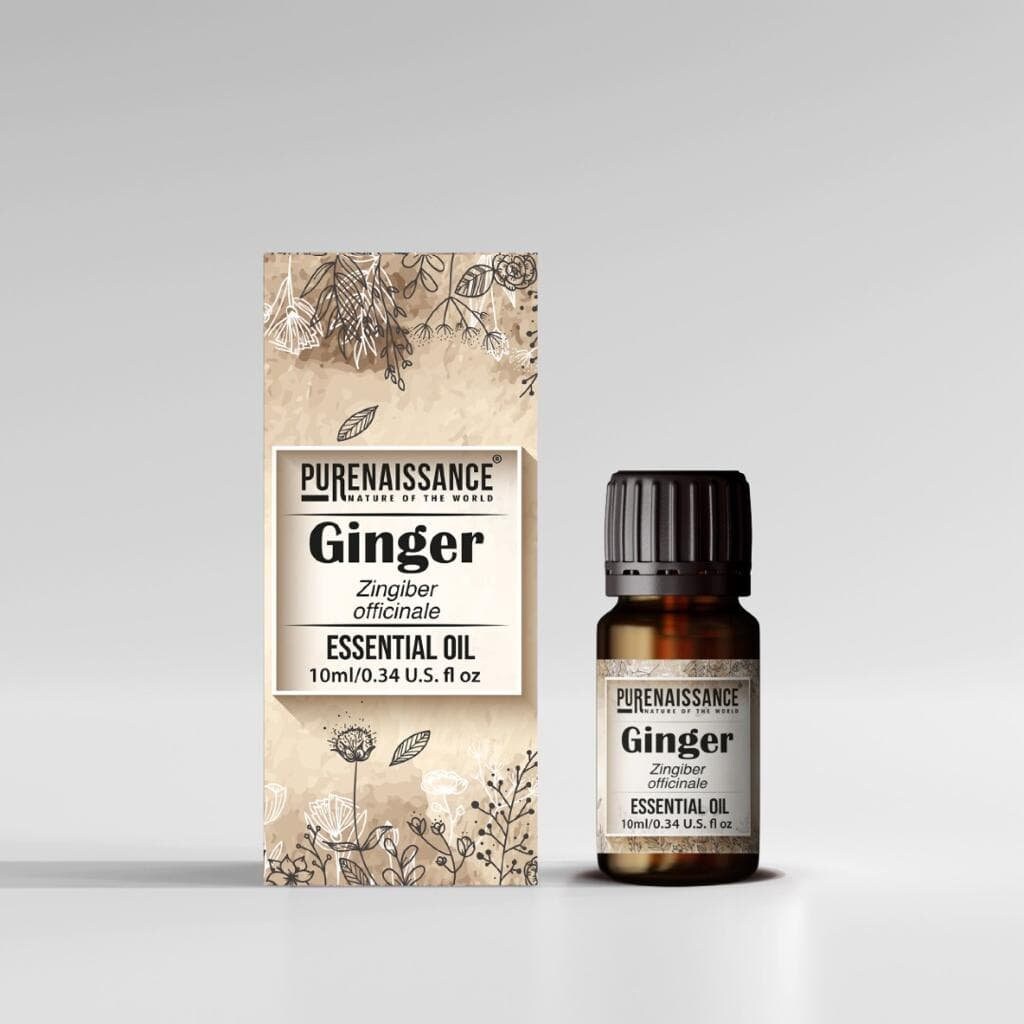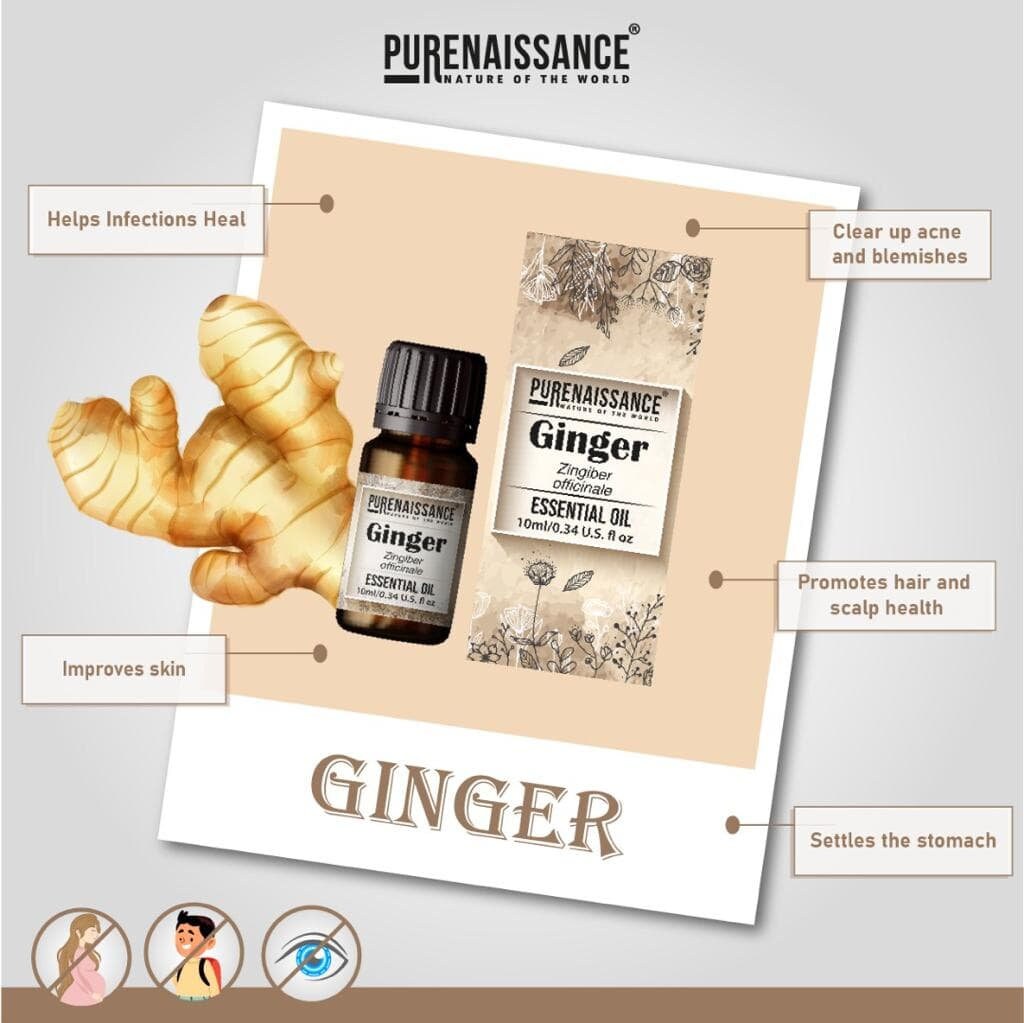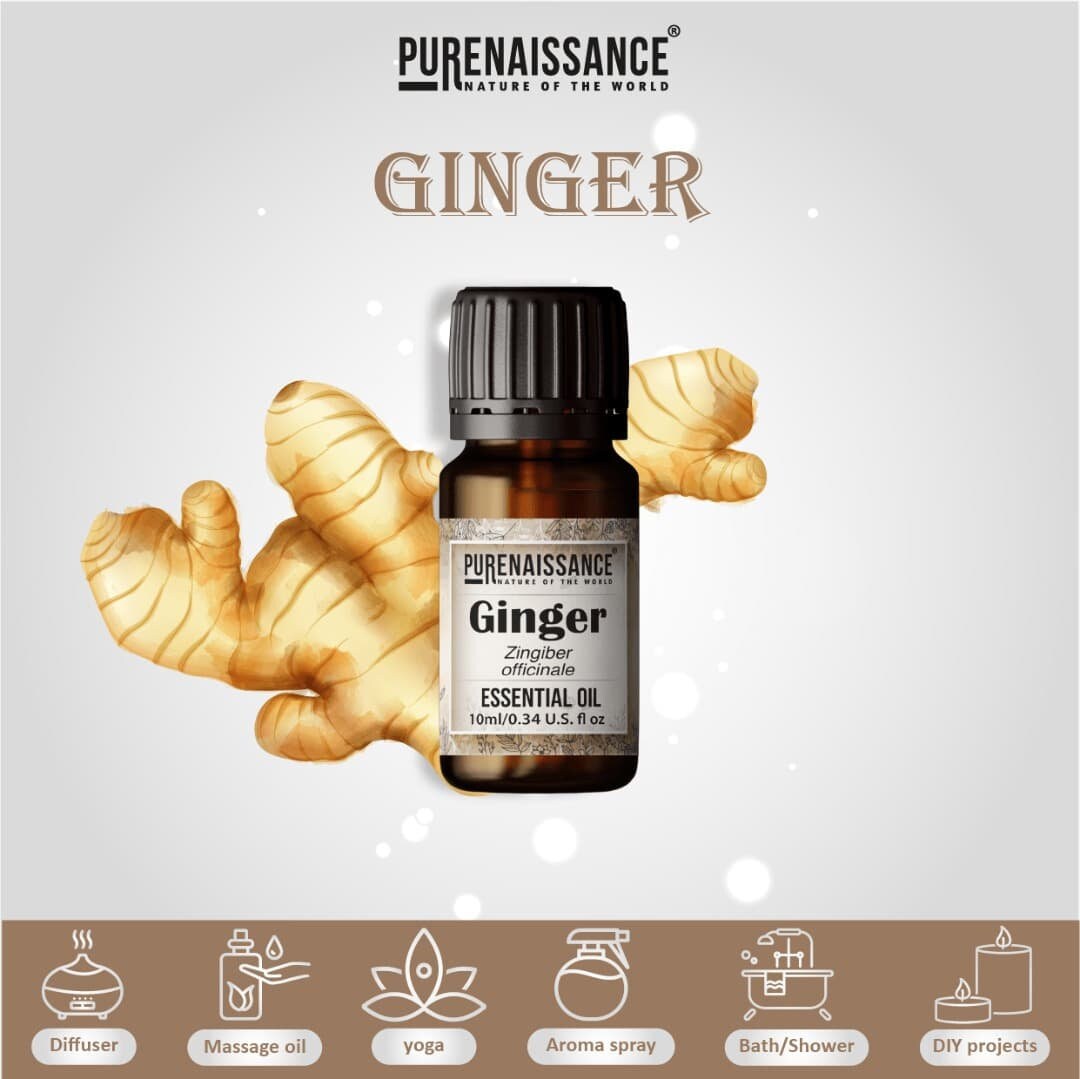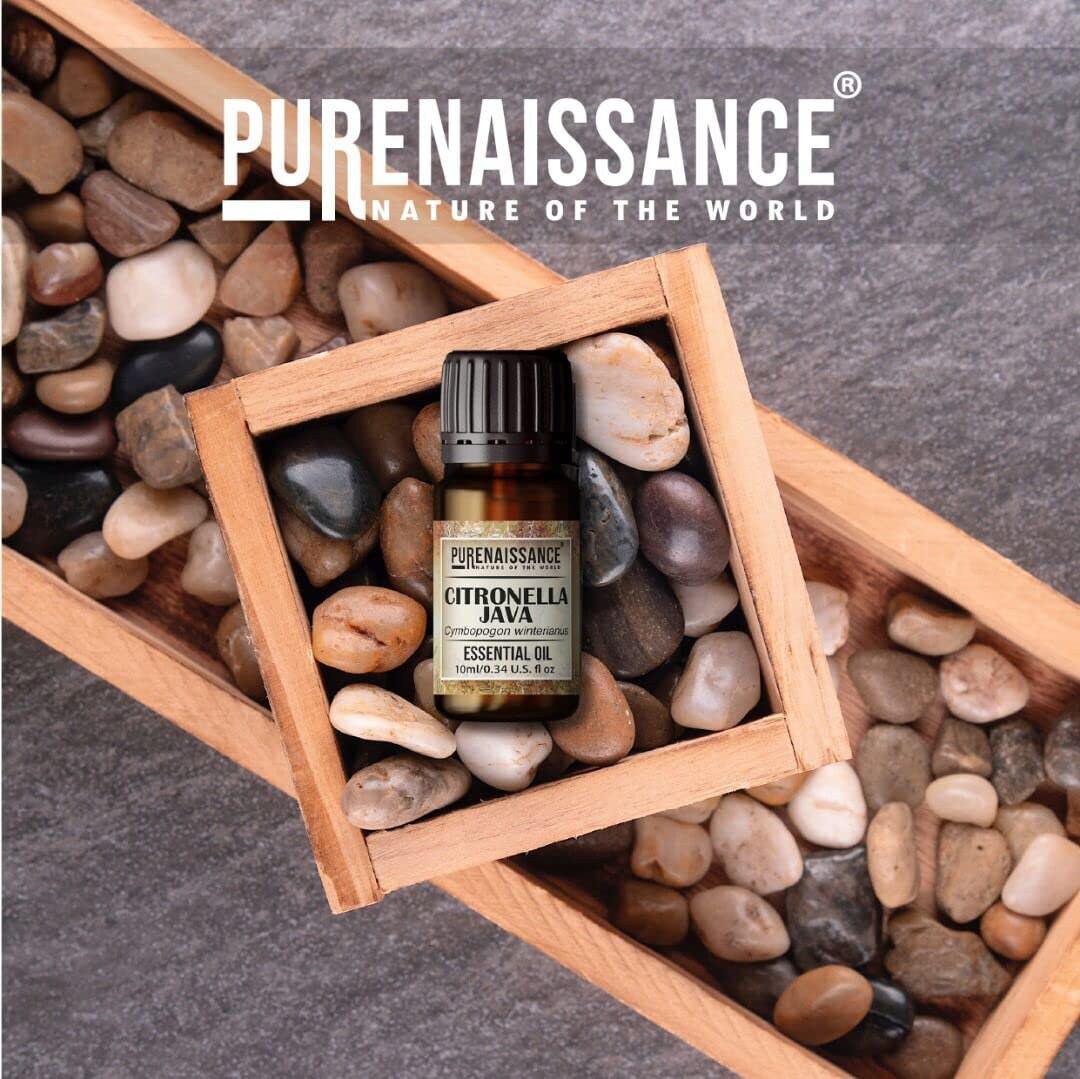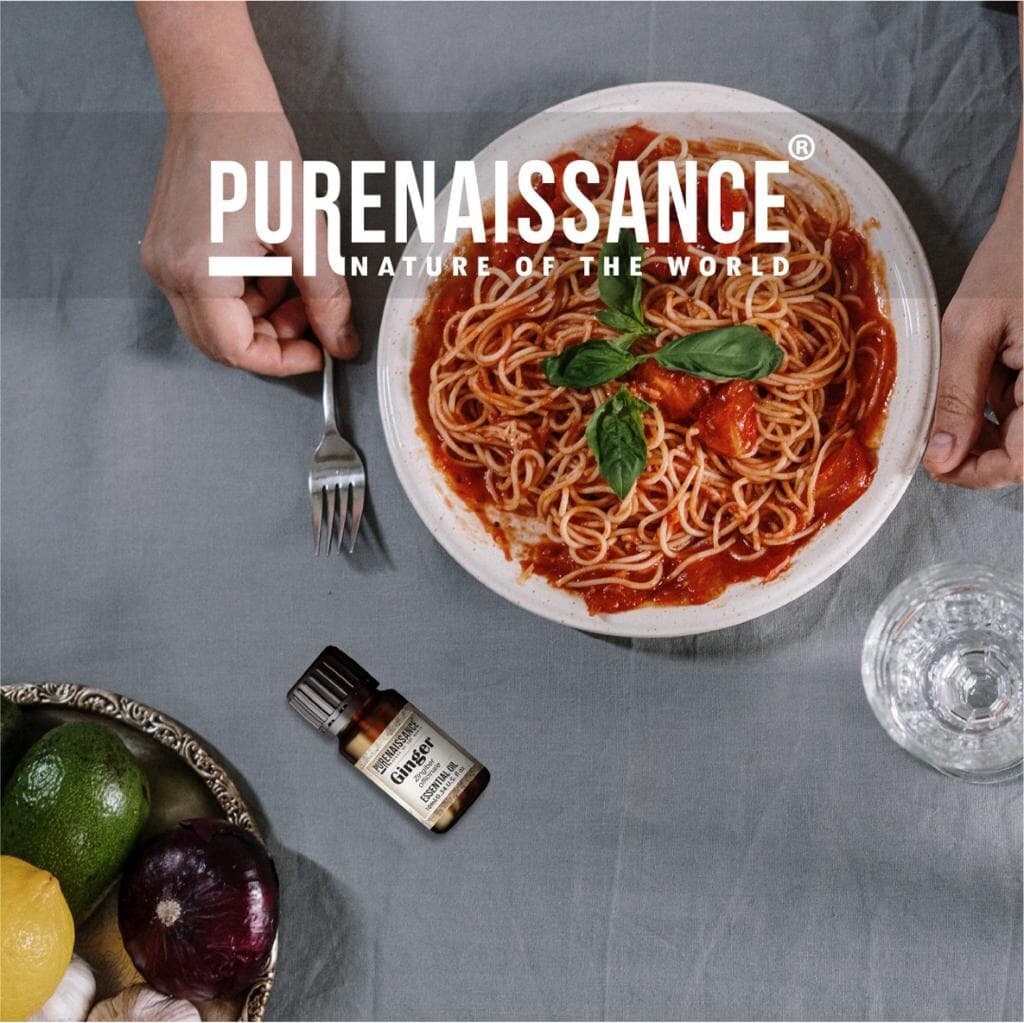Purenaissance
Pure Ginger Essential Oil Purenaissance Therapeutic Grade, Best for aromatherapy and Diffuser
Pure Ginger Essential Oil Purenaissance Therapeutic Grade, Best for aromatherapy and Diffuser
Couldn't load pickup availability
Product Description:
Ginger Essential Oil, also known as Ginger Root Oil, is derived from the root of the Zingiber officinale herb, commonly referred to as Ginger. The name originates from the Greek word “zingiberis,” meaning “horn-shaped.” This flowering perennial belongs to the plant family Zingiberaceae, which also includes Turmeric and Cardamom. Native to southern China, Ginger's cultivation has spread across Asia, India, the Moluccas (also known as the Spice Islands), West Africa, Europe, and the Caribbean.
For thousands of years, Ginger Root has been valued in traditional medicine for its ability to alleviate inflammation, fevers, colds, respiratory discomforts, nausea, menstrual complaints, upset stomachs, arthritis, and rheumatism. Additionally, it has been used as a natural antimicrobial food preservative and a spice for its flavor-enhancing and digestive properties.
In Ayurvedic medicine, Ginger Oil is traditionally believed to ease emotional challenges such as nervousness, sadness, low self-confidence, and lack of enthusiasm. The health benefits of Ginger Oil are similar to those of the herb itself, with the oil being considered more potent due to its higher Gingerol content. Gingerol is renowned for its antioxidant and anti-inflammatory properties. With its warm, sweet, woody, and spicy aroma, Ginger Oil has an energizing effect, particularly in aromatherapy, earning it the nickname “The Oil of Empowerment.”
Technical Data:
- Common Name: Ginger
- Latin Name: Zingiber officinale
- Appearance: Mobile liquid
- Color: Pale yellow to light brown
- Odor: Warm, spicy, woody scent with hints of pepper and lemon
- Botanical Family: Zingiberaceae
- Organ: Root
- Processing Method: Steam distillation
- Type: 100% pure
- Origin (Crop Location): Eastern Asia, Ivory Coast
Preferred Uses:
Dermal, respiratory tract
Chemical Composition:
-
Main Chemical Compounds:
- Sesquiterpenes (Zingiberene, Sesquiphellandrene): 55-60%
- Monoterpenes (Beta-phellandrene, Limonene): 15-20%
-
Other Chemical Compounds:
- Monoterpenols (Citronellol): 2-3%
- Sesquiterpenols (Linalool): 2-5%
Physical Characteristics:
- Density at 20°C: 0.872–0.894
- Refractive Index at 20°C: 1.485–1.492
- Rotatory Power at 20°C: -52° to -12°
- Flash Point: +65°C
- Shelf Life: Retest after 12 months, with a maximum shelf life of 36 months
Storage Conditions:
Store in a tightly sealed, original container in a dry, cool, and well-ventilated place. Keep away from heat, sparks, and open flames. Protect from freezing and direct sunlight.
Properties of Ginger Essential Oil:
Health Benefits:
- Digestive Stimulant: Its monoterpenes make it a powerful digestive tonic, promoting salivary flow and intestinal peristalsis.
- Anti-inflammatory: Rich in sesquiterpenes like Gingerols and Gingerens, which inhibit prostaglandin synthesis.
- Painkiller: Gingerols provide analgesic and potent antioxidant effects.
-
Other Benefits:
- General tonic
- Antibacterial
- Expectorant
- Antispasmodic
- Anti-nausea
Well-being:
- Physical Relaxant: Sesquiterpenes offer relaxing and sedative effects.
- Sexual and Mental Tonic: Zingiberene contributes to enhanced energy and vitality.
Beauty:
- Skin Benefits: Soothes redness, combats acne-causing bacteria, and prevents skin damage and aging (e.g., wrinkles). Ideal for revitalizing moisturizers.
- Hair Strengthening: Minerals and antiseptic properties promote scalp health and hair growth, while soothing dandruff-related dryness and itchiness.
Indications:
For Health:
- Digestive Disorders: Treats bloating, colitis, constipation, abdominal cramps, diarrhea, motion sickness, nausea, and vomiting.
- Immune Deficiencies: Boosts immune response through its antioxidant properties.
- Respiratory Disorders (ENT): Alleviates bronchitis, colds, influenza, sinusitis, and coughs.
- Muscle and Joint Pain: Relieves arthritis, osteoarthritis, and rheumatism-related discomfort.
For Well-being:
Addresses anxiety, depression, overwork, and emotional imbalances.
For Beauty:
- Improves skin tone and combats signs of aging.
- Enhances hair strength and stimulates growth.
Methods of Use:
Cutaneous Application (Massage):
- Dilute with a carrier oil for ENT disorders, digestive issues, and joint pain.
- Add to shampoo for scalp care or hair loss.
Oral Use:
Consult a professional before ingesting Ginger Oil.
Inhalation:
- Wet Inhalation: Add drops to hot water and inhale vapors.
- Dry Inhalation: Apply drops to a tissue or wrists and inhale.
Diffusion:
- Suitable for use in diffusers to promote well-being and combat infections.
Synergies with Ginger Oil:
- Alopecia: Blend with Nard, Grapefruit, Clary Sage, or Rosemary.
- Bloating: Use with Peppermint, Caraway, Cardamom, or Basil.
- Dental Abscesses: Combine with Clove and Lavender Aspic.
Precautions:
- Avoid during pregnancy or for children under 3 years.
- Always dilute before cutaneous use to avoid skin irritation.
- Use in culinary preparations sparingly (maximum one drop added at the end of cooking).
Share
